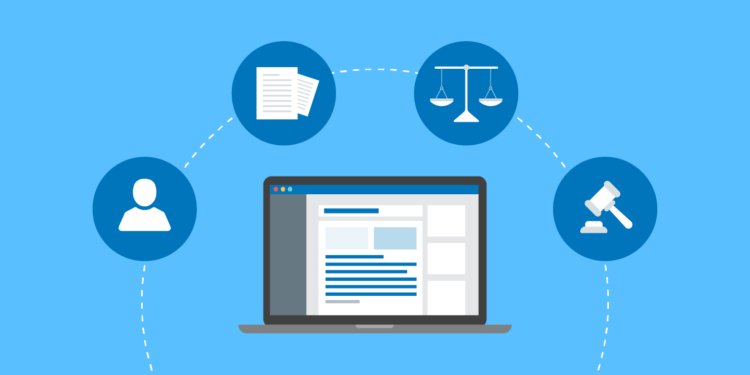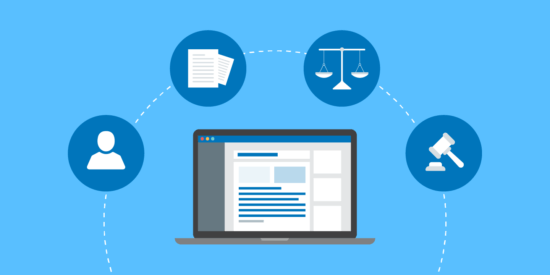Unbundled legal services—also known as limited scope representation—are an increasingly popular offering amongst lawyers and clients alike.
As an attorney, adding limited scope services can unlock a new market of clients for your firm. This applies to both business clients and individuals, including low and moderate-income households. Along with improving access to legal services, you will grow your business, generate new forms of revenue and provide better service to clients who may well go on to engage you for full-scope representation.
For clients, engaging with a lawyer offering unbundled services is an attractive alternative for legal assistance that they may not otherwise be able to afford. As these services are offered a la carte, they can be more affordable than a traditional attorney-relationship, where an attorney covers all aspects of the client’s case. The increasing implementation of limited scope representation is an important step in increasing access to justice.
In this article, we’ll define what unbundled legal services are, why they’re important, and how to begin offering them at your firm. We’ll also talk about how to satisfy your ethical obligations as a limited scope attorney. Finally, we’ll offer some examples for small firms and solos in the context of both litigation and transactional practices.
What are unbundled legal services?
Unbundled legal services are a specific method of legal representation in which attorneys assist only with clearly-defined aspects or stages of a client's case. These services offered may include preparing specific documents for clients, or appearing in court on a client's behalf. Clients themselves are responsible for other aspects of the case.
How do unbundled legal services work?
When a client hires a lawyer for unbundled legal services, the client doesn’t pay a traditional retainer. Instead, the client chooses and pays only for the services they want their lawyer to perform. The client then handles other aspects of the case on their own.
The specifics of each case are detailed in a limited scope representation agreement between the lawyer and the client. This contract clearly states what services or aspects of the case the legal practitioner is responsible for, and those that are the client’s responsibility.
As the case goes on, the client may wish to engage the lawyer further, in which case, a new or expanded limited scope representation agreement must be signed.
Why you should offer unbundled legal services
There are three main reasons why you should offer unbundled legal services as part of your practice.
1. Clients can benefit from increased access to justice
Organizations such as the Legal Services Corporation refer to it as the “justice gap”: The shortfall between the legal needs of individuals and the availability or affordability of legal help. Due to factors including income, race, and geographic location, many people receive limited, if any, help with their legal problems. As Shannon Salter of the Civil Resolution Tribunal (CRT) notes, there is simply a lack of resources.
Providing limited scope representation can be seen as one of the highest callings of the legal profession. By offering unbundled legal services, attorneys can provide narrower assistance, which requires fewer billable hours, and free up more time to help more clients. Providing this alternative service arrangement helps more people achieve access to justice.
2. Clients can benefit from more affordable legal services

Legal fees are expensive, both for individuals and for many small businesses as well. By making limited parts of legal services available on a “pay as you go” basis, businesses and individuals who otherwise might not hire a lawyer now have an affordable option. The combination of money saved and legal assistance received can relieve an enormous amount of stress, and help individuals and businesses thrive.
3. Serve more clients and grow your business

Solo attorneys and firms that offer unbundled legal services can still provide full-service representation for clients that request it. But the firm or solo can also capture businesses and individuals who only seek—or can only afford—unbundled legal help.
By offering services to both markets, limited scope attorneys can serve more clients, provide better service, and attract new types of clients. All of this is possible because unbundled legal services are more affordable, and can help grow and scale your business, whether your practice is litigation or transactional.
Firms that offer limited scope services can also benefit from alternative fee structures. While full-service matters might still be billed hourly, unbundled legal help can have flat-fee pricing. This allows you to capture an additional market of potential clients who prefer price certainty.
You may like these posts
How to offer unbundled legal services
There are six basic steps in offering unbundled services.
1. Understand your ethical obligations
Because rules concerning unbundled services vary by jurisdiction, you must research your ethical requirements before offering limited scope representation as a service. The ABA’s Formal Opinion on unbundled legal services, ABA Formal Ethics Opinion 472 (2015), notes that lawyers are authorized to provide limited scope representation under Model Rule 1.2(c). It recommends that lawyers providing unbundled services memorialize the scope of the representation to the client in writing. As ABA Opinion 472 further notes, Model Rule 1.2(c) allows a lawyer to limit the scope of representation if the limitation is reasonable under the circumstances and if the client gives informed consent.
Because each jurisdiction’s rules and case law differ regarding unbundled legal services and the law constantly evolves, small firms and solos should continuously check the ethics rules and decisional law in their jurisdiction before providing unbundled legal help. When in doubt, limited scope attorneys should seek and obtain state bar or court permission, if needed.
2. Determine what unbundled services you will offer
The best way to decide what unbundled services to offer is by identifying gaps in the market and groups who lack access to justice. A great starting point is to look at areas of law that are process-oriented, routine, and rules-based. These are ideal for a la carte offerings. As you take on more limited scope work, you’ll better understand what services your clients are looking for.
Depending on your practice, you may not be able to provide all of your existing services a la carte. For example, some legal services related to complex criminal matters or complex family law cases, especially those involving custody issues or highly disputed matters, may not be compatible with unbundled legal services.
3. Prepare a limited scope representation agreement
Attorneys offering unbundled legal services should draft a clear limited scope representation agreement that expressly defines what is and isn’t included in the unbundled legal services.
In addition, as discussed in the ABA Formal Opinion above, informed consent is required under the Model Rules (and may also be required in your jurisdiction). Always ensure that your client understands the limits of the unbundled legal services agreement, including the risks. Be sure to memorialize this in a signed writing.
4. Determine your pricing for unbundled legal services
To ensure you’re offering fair and reasonable prices for your unbundled legal services, look at the offerings of other lawyers in your geographical market and practice area. Seeing how others are pricing similar services will help you establish a general price range for your own.
Since you’re offering legal help for specific legal tasks rather than an entire transaction or case, charging clear and transparent flat-fee pricing will make your services more attractive. The more concrete the package of services you’re providing and the more price certainty you give your consumers, the more businesses and individuals will be interested in seeking your unbundled legal help.
5. Have a thorough client intake process

Providing unbundled services means you will also have a higher volume of clients, making a thorough client intake process essential. There are two critical aspects to effective client intake: Asking the right questions to qualify clients, and using reputable client intake software.
Asking the right gateway questions helps ensure you’re bringing on the right clients and taking on the right casework. It also helps you build a foundation of trust with clients from the very beginning.
When it comes to client intake software, the right solution can help you automate your intake process, making time-consuming tasks like data entry faster and more efficient. This frees up your time to focus on your clients. Clio’s software for attorneys includes a client intake system that attracts new clients and guides them through your intake process.
6. Make sure your client understands what you’ll be responsible for
While you’ll start your client relationships with a limited scope of representation agreement, it’s also essential to communicate with your client on an ongoing basis. Communicating often will ensure that the client understands which unbundled legal services you are and aren’t responsible for, and what the client’s responsibilities are. As the matter continues, remind your client of the agreed-upon scope. Where appropriate, raise the possibility of full-service representation if necessary.
Examples of unbundled legal services
Technology advances in document assembly and automation show that there are dozens of ways to provide unbundled legal help to new and existing clients.
What are some examples of unbundled legal services?
Examples of unbundled legal services or limited scope representation services include: Evaluating a case or transaction, providing limited litigation or transactional guidance, suggesting court documents or transactional documents for preparation, drafting the initial documents for litigation or transactional matters (or enabling your client to draft them with your document automation applications), advising for negotiations, evaluating settlements, and advising on deal closings.
As a more specific example, in the divorce context, an attorney may help a client draft the initial divorce filing, allowing the client to then take over on further case proceedings.
Conclusion
So long as limited scope attorneys follow their jurisdiction’s ethical requirements when providing unbundled legal help, there are many benefits to offering limited scope representation. By offering unbundled legal services, small firms and solos can grow their practices and provide access to justice for those who otherwise cannot afford representation. This is true for both small firms and solos, and both litigation and transactional practices.
Before getting started, be sure to properly define your tiers of service and think carefully about the appropriate pricing for your offerings. Once you begin engaging with the client, ensure that your arrangement is clear—both in writing and through verbal reinforcement. That way, you’ll ensure an excellent client-centered experience.
We published this blog post in July 2020. Last updated: .
Categorized in: Business








